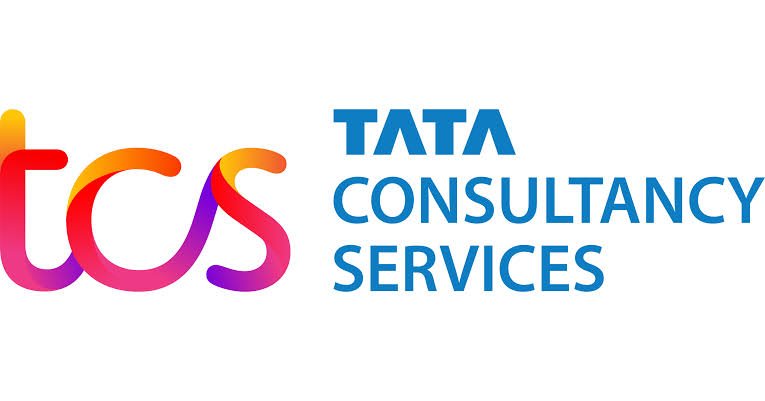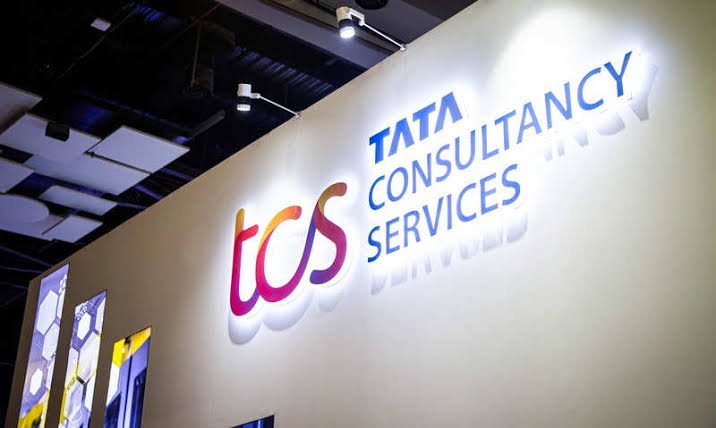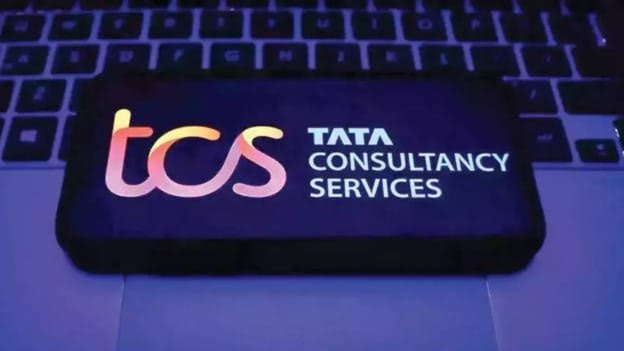Tata Consultancy Services (TCS), one of India’s top IT service providers, announced its Q2 results for FY25 on October 10, 2024, offering vital insights into the company’s performance amidst a backdrop of global geopolitical worries. TCS reported a 5% year-on-year (YoY) gain in net profit, but saw its operating margins slide marginally, reflecting cautious spending patterns by clients. In an earnings call, TCS management highlighted some critical themes, emphasizing the significance of AI and smart investments in talent and infrastructure to support future growth. The corporation also declared a dividend payout, suggesting confidence in its financial health. Here, we take a close look at five significant takeaways from the TCS Q2FY25 earnings.

1. TCS Q2 Key Financial Numbers: A Mixed Performance
TCS reported a consolidated net profit of ₹11,909 crore for Q2FY25, showing a 5% YoY growth from ₹11,342 crore in Q2FY24. Revenue from operations for the quarter came in at ₹64,259 crore, indicating a strong 7.7% growth from the ₹59,692 crore generated during the same time last year. However, in constant currency (CC) terms, the revenue growth was at 5.5%, demonstrating the impact of currency fluctuations in TCS’ major regions.

One of the most striking parts of the Q2 statistics was the small contraction in TCS’ operating margins, which came in at 24.1%, down by 0.2% from the previous year’s figure. Net margins for the quarter also declined, coming in around 18.5%. Despite this, the company managed to produce positive cash conversion, a credit to its solid operational management in a challenging macroeconomic climate.
The fall in margins can be ascribed to numerous factors, including growing competition, currency volatility, and cautious discretionary spending by clients in industries such as BFSI (Banking, Financial Services, and Insurance), which continues to be influenced by global uncertainty. However, TCS management remains bullish about its ability to manage costs and retain profitability through continued operational improvements.
Breakdown of Financial Highlights: – Net Profit: ₹11,909 crore, up 5% YoY.
- Revenue: ₹64,259 crore, up 7.7% YoY.
- Operating Margin: 24.1%, down 0.2%.
- Net Margin: 18.5%.
- Revenue Growth in Constant Currency: 5.5%.
2. Performance of Key Domains: BFSI Shows Signs of Recovery
The BFSI sector, which had been a drag on TCS’ performance in prior quarters, showed some indications of improvement in Q2FY25. After witnessing a minor drop in earlier years, the industry rose by 0.1% YoY in constant currency terms. The uptick, while modest, indicates that clients in the financial services sector are progressively restarting spending on digital transformation initiatives, albeit cautiously.

Other sectors also generated uneven results. The ‘Consumer Business’ and ‘Life Sciences & Healthcare’ categories each saw 0.1% YoY increase, showing sustained demand in these verticals. Meanwhile, the ‘Energy, Resources, and Utilities’ sector continued to perform strongly, showing a 7% YoY growth in constant currency terms. The ‘Manufacturing’ area also contributed positively, expanding by 5.3% YoY, driven by increased demand for digitization in production processes.
However, not all sectors fared as well. The ‘Communication & Media’ category showed a strong 10.3% YoY fall, affected by decreasing client spending on discretionary initiatives. Similarly, the ‘Technology and Services’ domain witnessed a 1.9% YoY decline, highlighting the challenges created by macroeconomic variables and competitive pressures.
Sector-wise Performance Highlights: – BFSI: 0.1% YoY growth (constant currency).
- Consumer Business & Life Sciences: 0.1% YoY growth.
- Energy, Resources & Utilities: 7% YoY growth.
- Manufacturing: 5.3% YoY growth.
- Communication & Media: 10.3% YoY drop.
- Technology & Services: 1.9% YoY drop.
3. Strong Performance in Growth Markets
TCS’ geographical performance in Q2FY25 was distinguished by robust growth in numerous important markets, with India leading the way. The Indian market expanded a stunning 95.2% YoY in constant currency terms, demonstrating growing demand for digital transformation services across sectors like government, retail, and telecom. TCS has been playing a crucial role in helping Indian enterprises and institutions adapt to new technologies such as AI, cloud computing, and cybersecurity.

The company also recorded excellent growth in other major geographies. The Middle East & Africa market rose by 7.9% YoY, followed by the Asia Pacific area, which registered a 7.5% YoY gain. Latin America and the UK also performed well, expanding by 6.8% and 4.6% YoY, respectively, in constant currency terms. However, North America, TCS’ largest market, had slower growth at 2.1% YoY, as clients continued to cut budgets amidst persistent economic uncertainty.
Despite the downturn in North America, the overall regional performance illustrates the strength of TCS’ global delivery approach and its ability to grab market opportunities across varied areas.
Geographical Performance Highlights: – India: 95.2% YoY increase (fixed currency).
- Middle East & Africa: 7.9% YoY growth. – Asia Pacific: 7.5% YoY growth.
- Latin America: 6.8% YoY growth.
- UK: 4.6% YoY growth. – North America: 2.1% YoY growth.
4. Workforce and Talent Management: Onboarding New Talent for Future Growth
TCS continued to invest in its workforce during Q2FY25, adding a net total of 5,726 workers in the quarter. As of the end of September 2024, the company’s overall headcount was at 612,724, making it one of the largest IT employers in the world. This includes more than 11,000 employees who were added in the first half of the current fiscal year.

Attrition rates within TCS’ IT services sector have been a source of attention for the corporation, particularly as the global demand for computer talent has surged. For the trailing 12 months, TCS reported an attrition rate of 12.3%, which is a considerable decline from the elevated levels recorded in previous quarters. This drop is a positive sign that TCS’ efforts to retain personnel through upskilling programs, competitive salary, and a dynamic work culture are paying off.
TCS also begun its campus hiring process for FY26, showing its commitment to establishing a strong talent pool for the future. The company’s focus on developing its personnel coincides with its aim to enable challenging technology transitions for its clients, particularly in emerging areas like AI, cloud computing, and cybersecurity.
Workforce Highlights: – Total Headcount: 612,724.
- Net Employee Addition in Q2: 5,726.
- Employee Addition in H1FY25: 11,000+.
- IT Services Attrition Rate: 12.3% (trailing 12 months).
- Campus Hiring: On target for FY26 onboarding.
5. Key Deal Wins: Expanding Global Partnerships
TCS’ Q2FY25 results also highlighted numerous key transaction wins, reflecting the company’s sustained success in acquiring new business across diverse sectors. These partnerships not only illustrate TCS’ ability to adapt to clients’ evolving needs but also underscore the company’s commitment to driving digital transformation projects across industries.
One of the most important deals was the expansion of TCS’ cooperation with Rolls-Royce to promote the development of sustainable technologies, including hydrogen fuel systems. This relationship matches with TCS’ commitment on contributing to global environmental efforts while leveraging its experience in new technologies.

TCS recently signed a strategic relationship with ASDA, a large British grocery chain, to boost its IT operations and consolidate its infrastructure services. This transaction is intended to increase ASDA’s operational efficiency and create cost savings.
In the education sector, TCS was picked by Follett Higher Education, North America’s top college store operator, to upgrade its IT infrastructure and cybersecurity services. This relationship is part of TCS’ broader efforts to increase its influence in the education sector, where digital transformation is becoming increasingly crucial.
Additionally, TCS teamed with Mansfield Building Society in the UK to digitally change its business operations, further exhibiting the company’s strengths in the financial services sector.
The company also continued its outstanding performance in the telecom sector, with Openreach, the UK’s largest telecom infrastructure provider, picking TCS as its strategic partner for the business operation transformation of its next-gen fiber network rollout.
Key Deal Wins Highlights: – Rolls-Royce: Expansion of collaboration for hydrogen fuel system research.
- ASDA: IT infrastructure enhancement collaboration. – Follett Higher Education: Cybersecurity and IT infrastructure services. – Mansfield Building Society: Digital transformation partnership.
- Openreach: Business operation change for fiber network rollout.
6. AI as a Strategic Focus: Scaling AI Solutions Across Client Ecosystems
TCS’ management, during the Q2 earnings call, stressed the expanding significance of artificial intelligence (AI) in its service offerings. The organization is working on numerous AI initiatives targeted at helping clients harness AI to streamline business processes, enhance consumer experiences, and improve decision-making.
TCS has been actively developing AI solutions across industries, including healthcare, retail, and manufacturing. The company is also investing in AI expertise and tools to help clients negotiate the hurdles of AI adoption and ensuring they are able to realize the full promise of these technologies.
In the healthcare sector, for example, TCS is working on AI-driven predictive analytics solutions that enable healthcare providers increase patient outcomes while reducing operating costs. In retail, TCS is helping clients boost customer engagement with tailored AI-driven suggestions and intelligent supply chain solutions.
With AI becoming increasingly fundamental to digital transformation initiatives, TCS’ ability to develop scalable AI solutions positions it well for future growth. The company’s focus on AI is also in line with broader industry trends, as firms globally attempt to harness the power of AI to remain competitive in a quickly expanding technological landscape.
AI Initiatives Highlights: – AI-driven solutions across industries (healthcare, retail, manufacturing).
- Investment in AI talent and technologies for scale adoption.
- Focus on AI-driven predictive analytics, tailored suggestions, and intelligent supply chain solutions.
Conclusion: Navigating Uncertainties with Strategic Growth
TCS’ Q2FY25 results highlight the company’s resilience and capacity to react to changing market conditions, despite difficulties posed by global uncertainties. While the decrease in operating margins and cautious client expenditure in certain industries pose challenges, TCS’ robust revenue growth, strategic deal wins, and concentration on emerging technologies like AI give a solid basis for future growth.
The company’s capacity to extend its alliances, particularly in major areas like India and the UK, and its dedication to building a competent staff, will be critical in generating long-term success. Moreover, TCS’ leadership in AI-driven solutions positions it well to benefit on the growing demand for AI-based digital transformation initiatives across industries.
As TCS continues to negotiate a challenging global landscape, its focus on strategic investments, human development, and technical innovation will likely keep it at the forefront of the IT services business.







